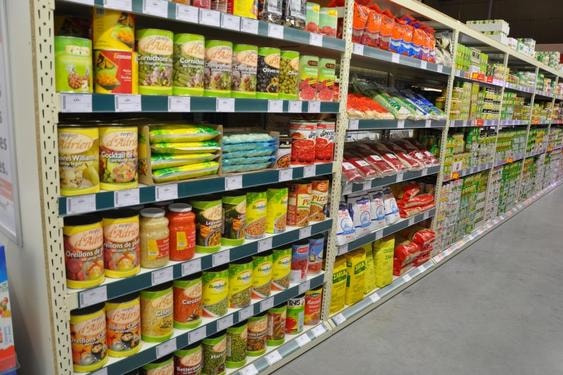The advantages of bulk buying are obvious: it saves money and helps avoid too many trips to the shops to buy things each time your run out of them. Sadly, there are also downsides to bulk buying: you need a lot of space to store all the stuff you buy for later use. Besides that, you also have to be quite savvy to make sure that the bulk does not lead to boring and repetitive meal options, and that you never buy so much that the sheer volume leads to a point where you are no longer aware of what you actually have in stock. I can see the value of buying non-perishable stuff like toilet paper in bulk, but how much do you really need? And isn’t it reasonable to assume that you’ll be back in a store that sells those rolls before you need any more of it? By all means, keep a stock of toilet rolls and when you take that package out of the storage location, take note of it and next time you go out simply buy a replacement, maybe? When it comes to perishable stuff, bulk is even more annoying: if you have too much and lose track of things, they often end up behind other stuff and you’ll find things that are past their date only when it’s too late. Storage of a huge number of items requires constant maintenance and checking, and not everyone is able to do that to the required level. The trick is to make sure to buy enough, but not too much! You need to know a bit about your usage and habits to figure out how much you need, and that can be done by keeping track of these things in a home ledger. How does a home ledger work? Let’s look at toilet paper as an example:
The same strategy applies to every single consumable item in your home, from tissue paper to tomato sauce: buy a reasonable number of each item, keep track of your usage and plan your shopping accordingly. It takes a bit of work at first, but then you’ll know exactly how much you need and avoid storing things forever, taking up space for no good reason. Sometimes, bulk might be your best option, though. If we return to the toilet paper example: you may just have a family that uses a lot of those rolls, and then bulk is perfectly suitable. As is the case so often, it’s a question of finding the balance between the lower cost of bulk, the inconvenience of storage and retrieval, and the number of shopping trips you’ll have to make. As mentioned above, there is something to be said to buy things in bulk that you use a lot of, or that much less expensive this way. Still, if you think of the time you spend checking and making sure your stock is all right, and you bring the cost of your time into the equation, you may find that bulk brings more hassle than it’s worth. This being said, some items are not necessarily saving you money: if you regularly find that certain parts of your stock – and I’m mainly talking perishables like juices, frozen meats, vegetables, etc. – are rotten, maybe you have to understand that you have bought too much of this particular thing because it came in bulk. Buying only the amount you actually need from a normal greengrocer’s shop or a supermarket may end up being cheaper in the long run than throwing away rotten food. Apart from the storage issues, buying in bulk also requires a larger vehicle to bring everything home. If you need large amounts of things, bulk packages might bring in lots more at the same time, but you’ll still be limited to a number of products that fit into your car. If you find, however, that you have to make multiple trips to fill all that bulk storage in your own home, the transportation cost could again be regarded as a negative on the money balance overall. In this case, more bulk means more trips, means more petrol used. My general rule for bulk is simple: for me it’s more about convenience than saving money! If something keeps for a long time, bulk might be a good thing for me. Having little space to store anything – just like many other people living in a small flat with little or no storage space – I find myself constantly making assessments if buying too much will lead to a ‘storage crisis’. I usually have some food staples in the house and buying things like biscuits, pasta, rice or tinned tomatoes in bulk makes sense as I use those regularly. Other things, like fruit and vegetables, juices, etc. I simply buy on a weekly basis in one shopping activity. So far it has always worked and rarely have I found myself without the stuff I needed. If you have enjoyed reading this, you may find these other articles interesting: Comments are closed.
|
Ask the ClutterMeisterIdeas to help clear away the mess in your homes and in your minds.
Feel free to share any of my posts, but please put in a backlink to the original blog post. Thank you. The author
Hi, my name is Tilo Flache. My mission: help clients declutter mind and space.
This blog contains pointers for your journey towards a happier living experience. Archives
November 2023
|



 RSS Feed
RSS Feed




